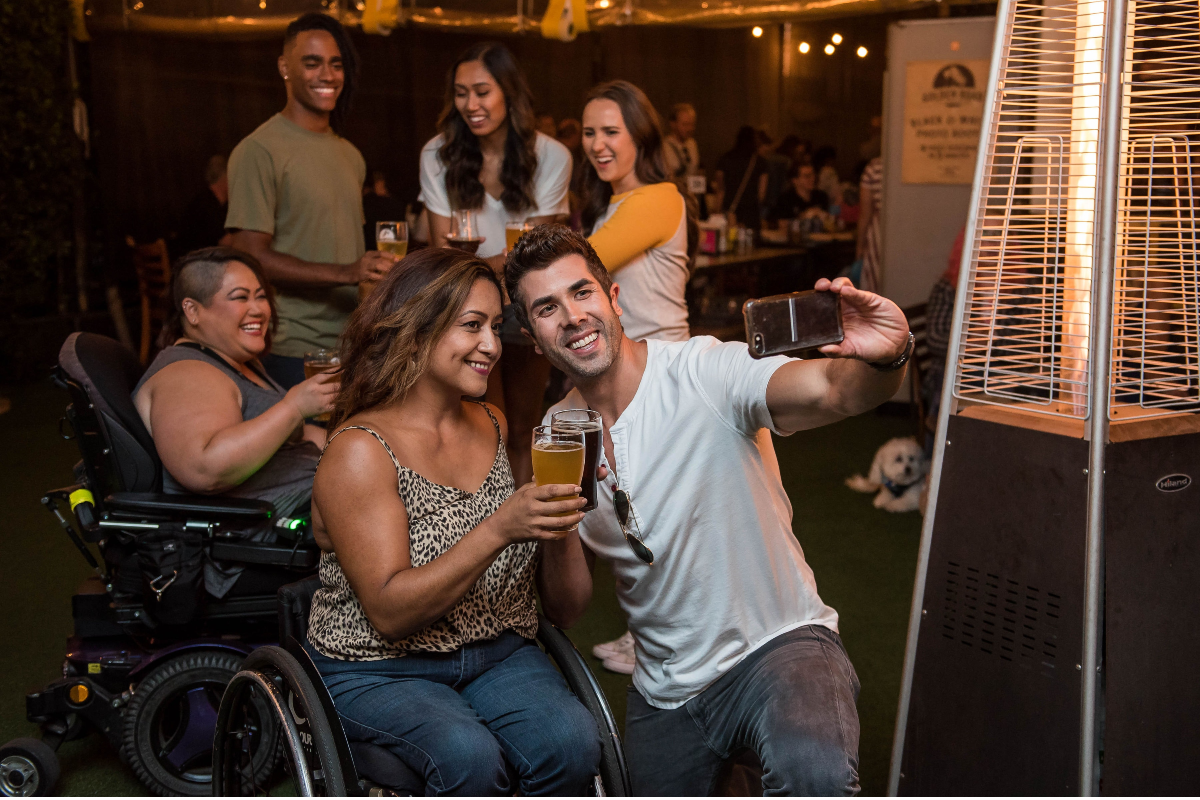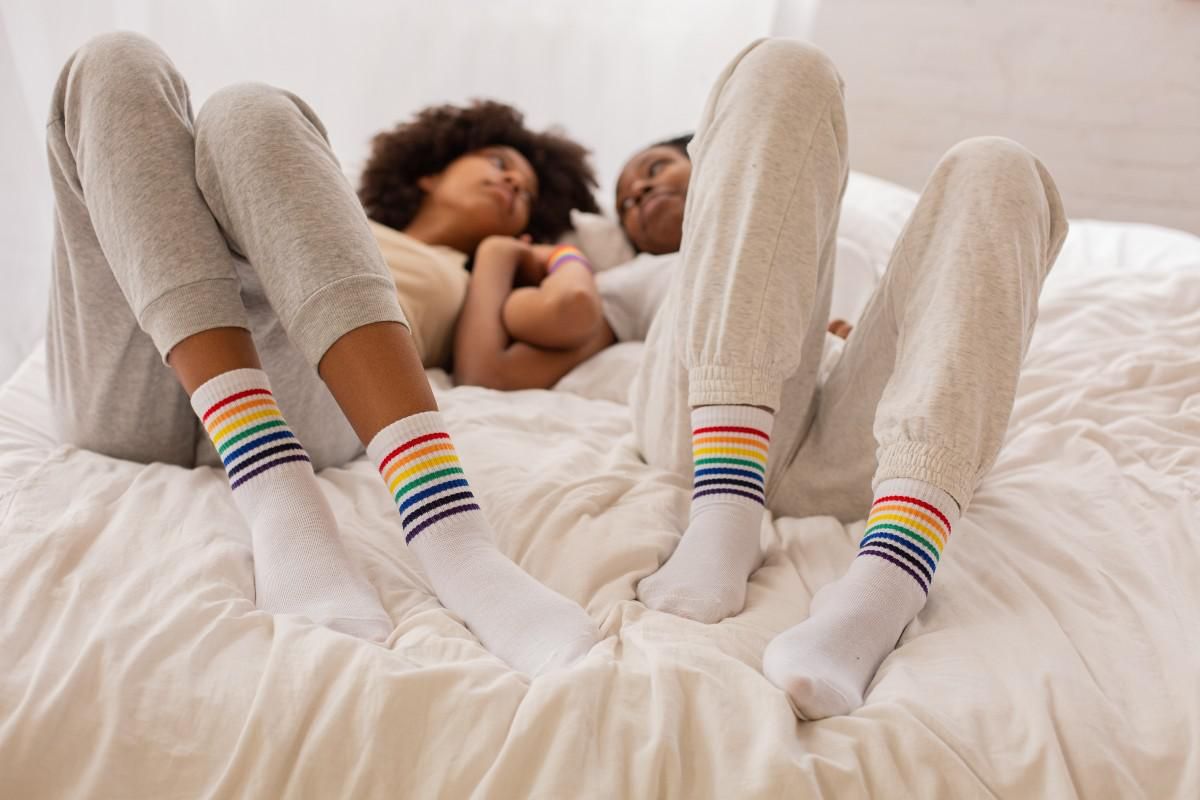Coping with Chronic Illness During Pride Month
Pride month is a time of celebration, activism, and inclusion, but it can be tough to take part when you live with a chronic illness. There is such a wide range of chronic illnesses that an individual can suffer from and they can make it difficult to have the energy or ability to take part in events.
Even if symptoms are managed well enough that day to attend an event, accessibility within queer spaces can be lacking (to say the least). While we are taking strides in the right direction, there’s still a lot of work to be done so that disabled people feel welcomed and able to access pride events.
In the meantime, if you have a chronic illness there are ways you can strike a balance and take part in pride. You deserve to be involved just as much as anyone else!
Express Your Needs
Able-bodied friends might find it difficult to understand what you need and what you’re experiencing if you don’t explain it to them (I don’t think anyone can fully understand a chronic illness unless they live with it). So, if you’ll be attending pride events with friends, family, or a carer, speak up and make them aware of your needs. You can chat before you go about what you need so they can better support you.
There are lots of things loved ones can do to help. It might be as simple as them going with you to find a quiet space when you need to take a break, or holding your hand to reassure you. It may be that your friends need to take it a bit slower so that you can keep up. If you have access needs, chat with your friends beforehand so they can help you find an accessible event that you can all attend together.
It can be hard to ask those around you for help, but it can make your life a lot easier when you do. There’s no shame in asking for help – you are not a burden!
Use Your Mobility Aids
If you have access to mobility aids and they help you, then use them. There’s a lot of stigma around mobility aids, especially for younger people. This can make it difficult to overcome internalized ableism. But fundamentally, mobility aids are there to make you more mobile and improve your quality of life!
Some people have used aids for years because symptoms fluctuate from day to day and some use a number of different aids depending on what their needs are each day. Sometimes they need to use a wheelchair, sometimes a walker, and other times a stick. A lot of people love their aids and feel privileged to have access to them. They help you live your best life! Yet quite often other people with chronic illnesses say they struggle to use aids because they’re worried about what others might think or because they don’t feel they’re ‘ill’ enough to use them.
If using an aid could help you and you can access it, then you can use it! You don’t need permission from anyone else and it doesn’t matter what others think. Their purpose is to help you live the life you want to live, so use that aid if it allows you to get out there and enjoy pride!
Find Accessible Events

Friends at a bar.
Although it shouldn’t have to be you that does the work to figure out if pride events are accessible, at the moment it falls to us for the most part. So, it’s best to do some research. If you have access needs, it’s best to email, message, or call event organizers to make sure you can access events. If it’s easier for you, you can make an email template so you can just copy and paste if there are a few events you want to contact.
Pace Yourself
If you’ve had any treatment for your chronic illness, you’ve likely heard of ‘pacing’. Essentially, it means pacing your activities, so that you’re taking rests and not overdoing things. This helps to prevent a flare-up of symptoms.
Pacing yourself during pride is important so you can take part without aggravating your symptoms too much. For example, you might only choose a couple of events that mean the most to you to take part in. You might schedule rests during the day or allocate a rest day after you’ve attended an event. At the end of the day, we’re all individuals and you know your body and how it responds to activity best.
Keep Up With Self-Care Practices
Self-care is anything you do to look after your physical or mental health, like sleeping on a regular schedule and eating well. When there’s lots of excitement going on and that party atmosphere, you might find yourself swept up in it and forget to keep up with self-care. Unfortunately, unlike able-bodied people, we tend not to be able to cope as well with this and it can take a toll on our bodies.
So, do your best to keep up with self-care even when you’re attending an event. Make sure you’re eating, staying hydrated (especially if you’re drinking alcohol), and getting some rest. Keep up with your medications and any treatments you use (It's helpful to set reminders).
Have a To-Go Bag
A to-go bag is a bag that has all the supplies you might need to help you manage your illness while you’re out. You have it ready packed so you can just grab it and take it with you wherever you go, that way you don’t need to worry about forgetting anything.
A to-go bag helps you be prepared, whether you’re attending pride or just going out to enjoy the sun. What you need in your to-go bag will vary depending on your illness and your symptoms, but we’ve included a list of examples below to give you some ideas:
- A set of your medications
- A list of numbers people to call if you need help
- A fan to keep you cool (handy if your symptoms are aggravated by heat)
- Some gloves, warm socks, a hat, or scarf to keep you warm (handy if you struggle with circulation issues)
- A bottle of water in case you can’t find a place to get a drink
- Some snacks (good if you struggle with blood sugar issues or if you need to keep your energy up)
- A pulse oximeter (if you need to keep an eye on your heart rate and blood oxygen levels)
- Noise-canceling headphones or earplugs (useful if you struggle with sensory issues)
Get Involved Online
There are often pride events you can get involved in online. Since Covid, there’s been an increase in pride celebrations being streamed live or done via group call, which has made pride more accessible for people who may struggle to attend in person. Hopefully, these online events will continue so that more of us can be included.
You can also get involved in raising awareness and campaigning for better rights for our community by sharing petitions, speaking up on social media, and sharing your own experiences.
Say No When You Need To

Women with pride socks
Even though it can be difficult to turn down an invite when you really want to take part, sometimes when you live with a chronic illness you have to say no. Your health comes first so don’t be afraid to set a boundary and stay home if you need to.
We know it can be frustrating and feel isolating when you aren’t able to be involved, especially when you see other people out enjoying pride with their friends on social media. But please know that you aren’t alone: there are lots of other chronically ill queers out there just like you.
For many, finding the chronic illness community within the LGBTQ+ community can be so validating and reassuring (there are lots of us on social media). You are valid and your needs matter. In the future, hopefully, pride will be more accessible to all of us.


